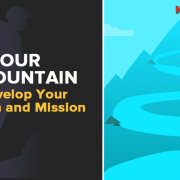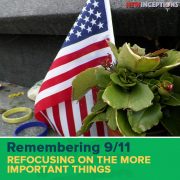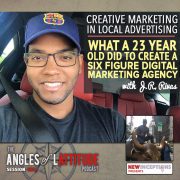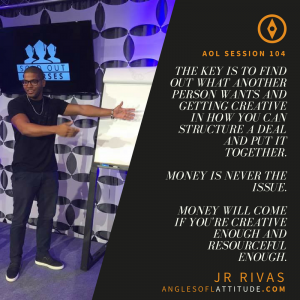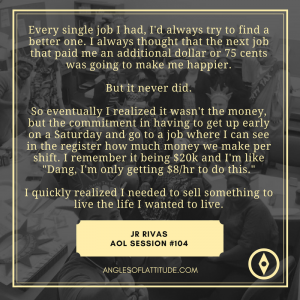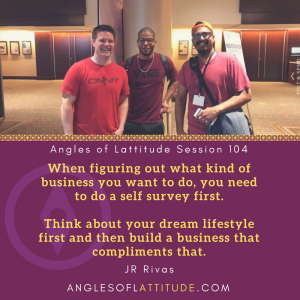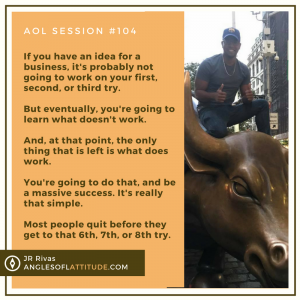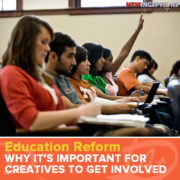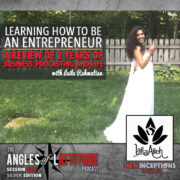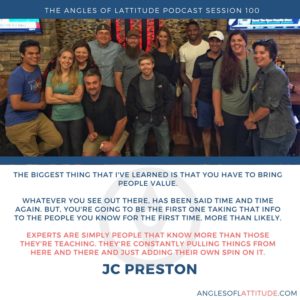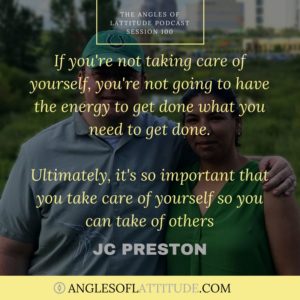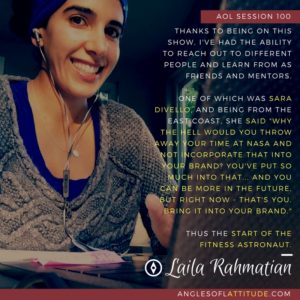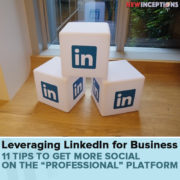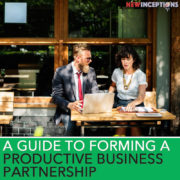It’s September 12th again. The day after 9/11. How are you feeling? What’s on the top of your mind? Business plans? Getting out of your day job on time? Lots of things going on, I’m sure.
Let’s slow down a little bit. Let me ask you a question.
Did you have the chance to watch any of the memorial services for 9/11 yesterday? Why or why not?
I did – and here’s what I got to share with you.
Remembering 9/11
Since the World One Trade Center has been finished, I’ve noticed that every year they read the names of the victims of 9/11. They might have been doing it longer than that, but I didn’t realize it because I was too busy. With college and then with work after I graduated.
Why did I watch? I didn’t lose anyone in the tower. Heck, I don’t know if I knew anyone that was affected by it at the time it happened.
So why did I watch? I guess the simple answer is that I wanted to remember. Remember where I was and what was going through our minds at the time.
When I was growing up, before that point, I didn’t know what it was like to be witness of a life changing event.
My mom had always been able to tell me very vividly about her whereabouts for the assassination of JFK. Similarly, she could remember where she was for other “world shattering” events including the Challenger explosion, when she heard of Martin Luther King Jr’s assassination, and others.
While I’m sure everyone here in the United States can remember where they were at in their lives at that point (if they were alive), I know that not everyone gets the chance to reflect on that day. As mentioned, I didn’t for several years.
Remembering 9/12
For most folks, 9/11 isn’t a holiday. Nor is it a celebration. However, I believe that it needs to be remembered and reflected on annually. Not because of the event itself. But what happened the day after.
Just as Texans and the rest of America drove to aid the victims of recent hurricane Harley and the upcoming storm Irma this past week, so did people on 9/12. Local fire and police departments as well as everyday people from all corners of the country went to go help as much as they could.
The acts of 9/11 made us come together and act as one.
In 2009, Glenn Beck created the 9/12 Project to reflect upon those selfless actions and who we were at that point in history. Because it seemed that we had too easily forgotten those times.
It being Glenn and the polarizing person he was at the time (he has since apologized for his actions during that time), I don’t think he was able to reach those that needed to hear the message.
And, as you can tell from this video, it’s hard to tell if he won any new friends with those that did hear about it.
While I feel that his heart was in the right place, I think the 9/12 Project missed the mark for most people.
The Grocery Store Method of Reasoning
However, he did manage to get my attention. My mom followed him quite a bit – however, I tended to focus more on business type stuff at the time.
Upon hearing this message, though, I did start thinking it was necessary to become more involved in my community. I think it was due to this that I eventually became a member of the Freemasons.
However, not everything he said applied to me, and I think this is where a lot of people have hang-ups in today’s world.
Just because someone says something which doesn’t agree with you, it doesn’t mean that other things that they’re talking about are false or that they’re completely unagreeable.
In fact, most people have more things in common than we don’t have – regardless of where they are in life.
Just as if you were getting groceries, it’s your job to NOT take everything you see at face value. Just because something sounds good, doesn’t mean you should include it in your thought process.
On that same note, simply because something might not agree with you, it doesn’t mean it’s not true or good for you (just like broccoli!).
It’s up to us to see the context of where the message is coming from. And what’s great is that the more Truth we know, the easier it is for us to make a decision based on the context AND message.
Finding Truth in the 9/12 Project – Refocusing on the Important Things
So let’s look real quick on what Glenn said about the 9/12 Project. First, he has 9 key principles that we should follow if we were to be a part of the project. Knowing that he’s a pretty spiritual (and religious) dude, I wasn’t surprised to find references to God.
If we take that into context and actually see what he’s saying AND not take it personal (One of the Four Agreements), what can we pull from his message? What the heck is he really saying?
Let’s take a look.
America is good.
Yeah, I’d say so. I mean, again, after seeing us come together for the victims of recent hurricanes – I think we’re good. Now, the government, on the other hand… that’s another story, but I think Americans are good as a people.
I believe in God and He is the center of my life.
So here’s my take on religion – it’s not for everybody. Most people that it’s not for – they say that religious types don’t practice what they preach. I don’t personally know BAD Christians. Do they exist? Sure. But there’s bad versions of every group out there.
I think this is where most stereotypes come from. But, because they exist doesn’t necessarily make them “normal”.
So let’s talk straight normal person to normal person here.
Perhaps Glenn could have said “I have a core set of principles and I act on those principles on a consistent basis. My life is based on those principles.” to make it a little more all inclusive.
In that frame, I think many of us would agree that we have core principles which we use to define our lives.
I must always try to be a more honest person than I was yesterday.
Yes, of course. Lying to yourself and others ultimately only screws things up. Truth is pure. While some people might get upset at it, that doesn’t mean it’s any less-true.
Big word of advice – start seeking the Truth. Listen to all sides of the story and make up your own mind – not what one particular media source tells you to think.
The Family is sacred. My spouse and I are the ultimate authority, not the government.
This is another of those points that could have worded a bit better. Instead, it could have read “My spouse and I care for and are responsible for the actions, values, and beliefs of our family. Not the government.”
This I agree with because I don’t think it’s the government’s job to make things “fair”. I’ve never seen the government build up any one group. I’ve only seen them tear down others when one group is crying the loudest. That’s the opposite of being fair in my book.
If you break the law you pay the penalty. Justice is blind and no one is above it.
Yes. Totally with that.
Totally true. There’s also no guarantee that starting points are the same. And what’s ironic, is that I’ve seen more people go from broke to being wealthy, than I’ve seen middle class becoming wealthy. Gary V is a great example – so are a ton of online business folks – AND people I’ve had on the podcast.
I work hard for what I have and I will share it with who I want to. Government cannot force me to be charitable.
Yes – totally agree with this. See above. But I think it’s also our own responsibility to know when to be charitable. That’s not something that society teaches. In fact, I’d say that it teaches the opposite most of the time. Every day people are inundated with the idea that it’s them vs the World. It indirectly promotes the scarcity mindset – not an abundant one.
It is not un-American for me to disagree with authority or to share my personal opinion.
Agree. That’s the whole point of protection of free speech and ability to bear arms. While that allows for some very hate filled rhetoric, it also allows for well intentioned speech at the same time. The reason that we can bear arms is that if Washington ever becomes so removed from the people that it’s us against them (or some other apocalyptic situation), then we have the permission of the founders to have our own militias. If you don’t support Americans keeping firearms, then it comes across that you 100% believe the government is never going to turn on you. Which moves onto…
The government works for me. I do not answer to them, they answer to me.
Yes, 100%. Even when it comes to taxes and other “governmental” stuff. We technically should have the power to determine what we’re being taxed. However, Washington thinks they’re better than us, so therefore, they vote things into place that shouldn’t have happened if they were doing their job in the first place.
12 Values of the 9/12 Project
Honestly, all the values that he put in the list are those that Lewis Howes, Tony Robbins, or someone similar (I can get you a long list if you really want one!) would have said helped them get to where they are today – especially if they’re God fearing folks.
So, I’ve made it a point to make sure that I have these values as much as possible. However, there might have been a little bit of tweak on some for better wording.
The 12 Values
After looking at these values, do you believe that anyone who has achieved greatness in their life doesn’t practice them regularly? I mean, when I think of Lewis Howe’s show and the people he’s talked to – all of these words come to mind.
Action Steps
After seeing these principles and values of the 9/12 project, I hope you can understand why I feel I need to respect those that we lost on 9/11. We should also appreciate how we came together to deal with it all. Personally, I feel if I can reconnect to those feelings, it helps keep me anchored to who I see myself as.
Also, it’s especially touching to see some of the kids of these folks read off the victim’s names. Lots of these folks (some near my age) have made their lives better as a contribution to their lost parent, family member, or friend.
I can only think that our true friends and family would want the best for us. And because of that, I think it’s on our shoulders to live up to some certain standards in life. If not those of the 9/12 Project, then something else.
I just think the 9/12 Project is a good place to start. A lot of people can relate to it – even if they don’t care too much for its creator.
What are some key principles and values that you have? Let me know below.

